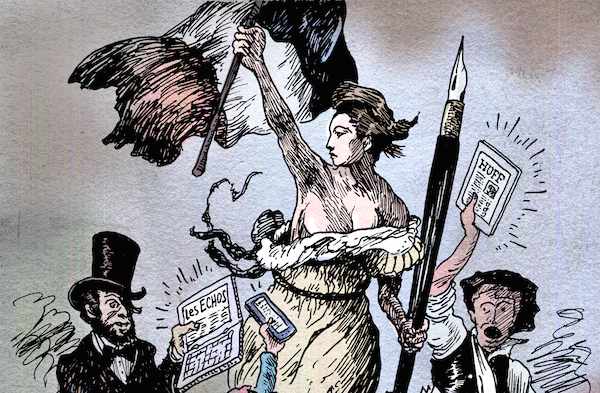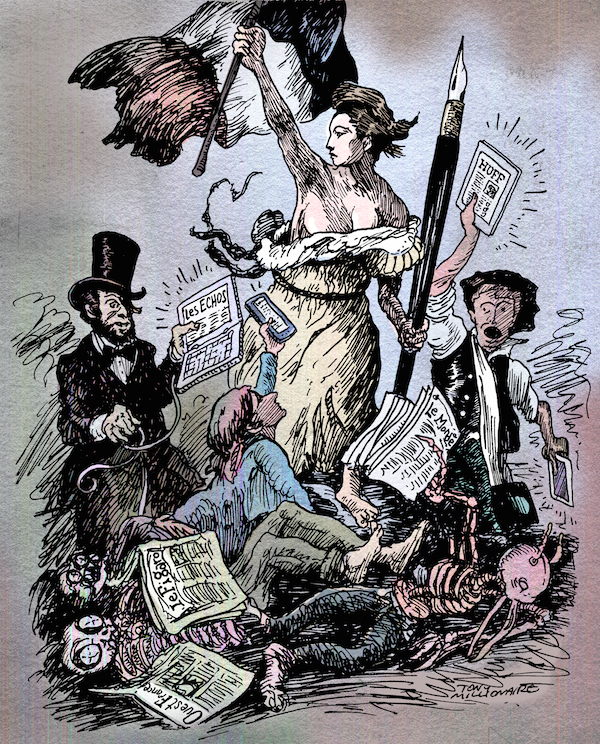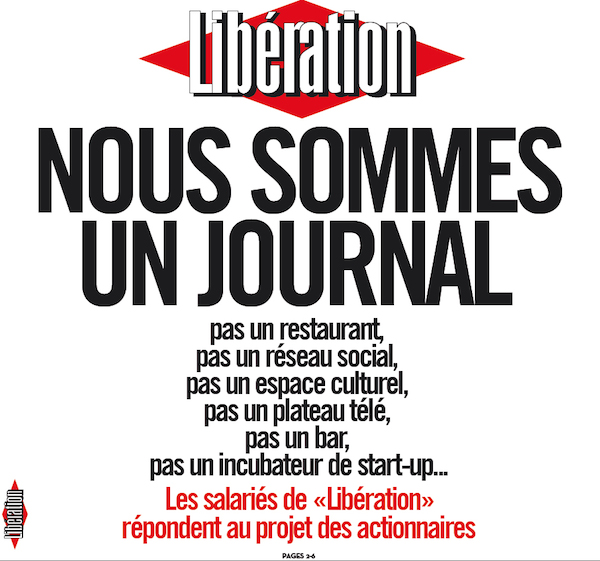
Editor’s note: Our sister publication Nieman Reports is out with its new issue (and new website). Here’s one story that might be of interest to Nieman Lab readers: a look at how the rise of digital is being felt in some journalistic institutions (new and old) in France.

Of all the papers and newsmagazines in France, one in particular should have been well prepared for the challenges of this digital era: Libération. With its witty headlines, striking photo portraits, and its passionate and often provocative coverage of arts, society, and politics, “Libé” has ridden the counterculture wave ever since it was founded by the philosopher and writer Jean-Paul Sartre 41 years ago, on the back of the 1968 student protest movement.
Part of its ability to capture the zeitgeist has been its often savvy approach to technology. Even before the Internet era, it made money with the French precursor, the Minitel, including by hawking soft porn dialup services. Back in 1995, as Netscape was preparing to go public, the paper launched a highly successful multimedia section. Soon thereafter it built its own robust website, one of the first French newspapers to do so.
Yet today, Libé is a wreck, and its digital presence an embarrassment. Laden down by debt, it’s losing money faster than you can say “existentialism.” Its once faithful readership is giving up on it: Circulation dropped 15 percent last year and has since fallen below 100,000. Its website has fewer than 10,000 paid subscribers.
As for Libé’s 190 journalists, these days they are fighting a rearguard battle for their right to retain ink and paper. In February, after the chairman of the paper’s board, a real-estate executive, suggested exploiting the brand by creating a social network and installing a restaurant or café in Libé’s building on the edge of Paris’s trendy Marais district, the editors replied with an indignant front-page banner headline: NOUS SOMMES UN JOURNAL (“We are a newspaper”).

The message was an in-your-face slap at the board just as it was scouring for new investors, and the neo-Luddite sentiment it seemed to reflect was jarring. One longtime reader tweeted a parody version that read, “We are in the 21st Century.” It quickly went viral.
La une de Libé et sa parodie, symbole des difficultés des médias français au début du XXIe siècle. Vous avez 4 heures pic.twitter.com/f4DbB3eTSB
— Yann Guegan (@yannguegan) February 8, 2014
Even some of those with a long attachment to the paper were taken aback. “It was a horror,” says Frédéric Filloux, who built Libé’s first website back in 1997 and now runs the Web operations of the business daily Les Echos.